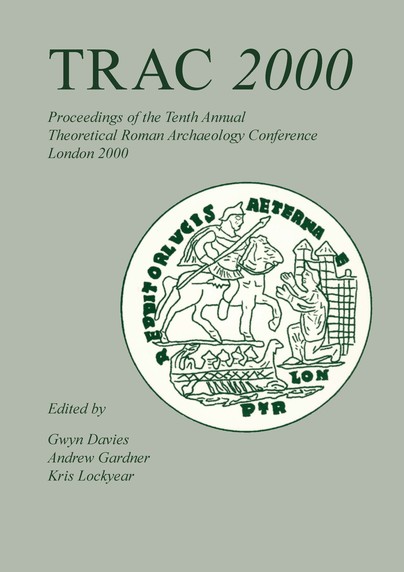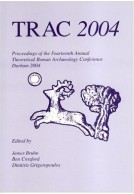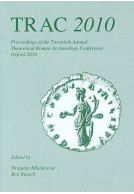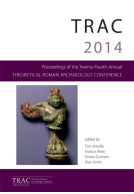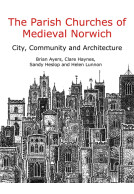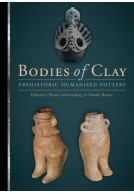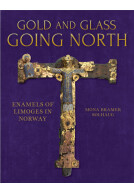TRAC 2000 (Paperback)
Tenth Annual Theoretical Roman Archaeology Conference
Imprint: Oxbow Books
Series: TRAC
Pages: 176
Illustrations: b/w illus
ISBN: 9781842170434
Published: 31st January 2000
Script Academic & Professional
Series: TRAC
Pages: 176
Illustrations: b/w illus
ISBN: 9781842170434
Published: 31st January 2000
Script Academic & Professional
You'll be £30.00 closer to your next £10.00 credit when you purchase TRAC 2000. What's this?
+£4.99 UK Delivery or free UK delivery if order is over £40
(click here for international delivery rates)
Order within the next 6 hours, 12 minutes to get your order processed the next working day!
Need a currency converter? Check XE.com for live rates
(click here for international delivery rates)
Order within the next 6 hours, 12 minutes to get your order processed the next working day!
Need a currency converter? Check XE.com for live rates
This book contains thirteen papers on Roman archaeology from the tenth Theoretical Roman Archaeology Conference in London. The TRAC conference was held in April 2000, at the Institute of Archaeology and was divided into five different sessions. In the opening session, Representing Romans, the methodology of portraying the Romans to the wider world was explored. David Clarke and
Fraser Hunter’s paper outlines the challenge of designing appropiate gallery displays for the new National Museum of Scotland. In his paper, Francis Grew discusses the development of Roman London.
Garrick Fincham’s paper discusses the threat of overwhelming military intervention by the imperial power in colonial negotiations. Issues of ethnicity, gender, class and occupation within the later Roman army are addressed here.
Miranda Green’s paper presents an important discussion of the nature of human/stag hybrids in Iron Age and Gallo-Roman iconography, and Gillian Hawkes presents an analysis of food procurement and preparation encountered in Roman Britain. Gilly Carr considers the role of body decoration and grooming, arguing that individuals in different areas of south eastern Roman Britain made different cultural choices to structure their ethnic identities.
The final set of papers focused on Constructing Childhood in the Roman World, reconsidering some long-standing truisms regarding the status and treatment of children in the Roman context. John Pearce examines Roman infant burial and the role religion plays in burial ceremony.
Other titles in the series...
Other titles in Oxbow Books...







